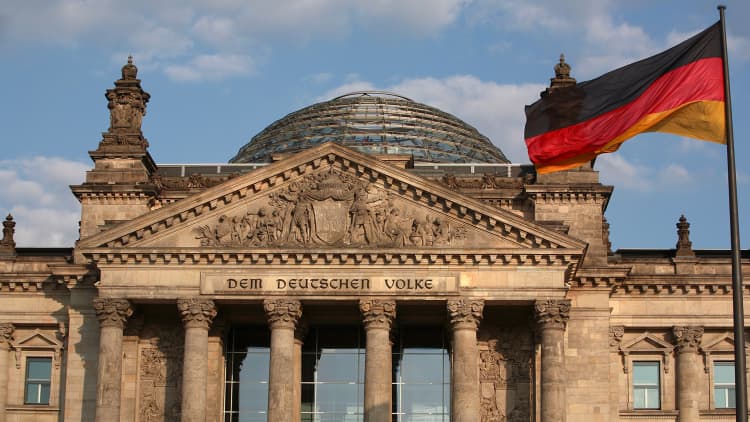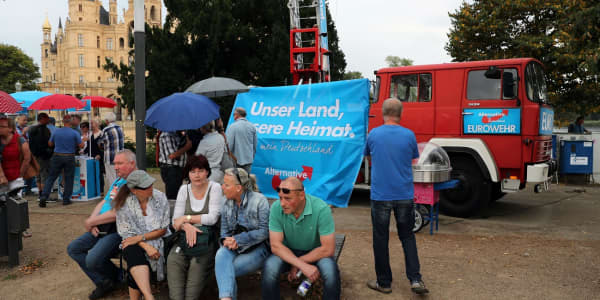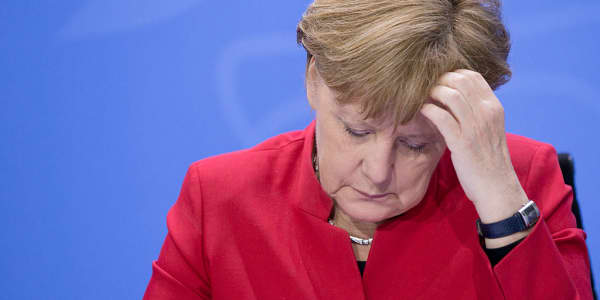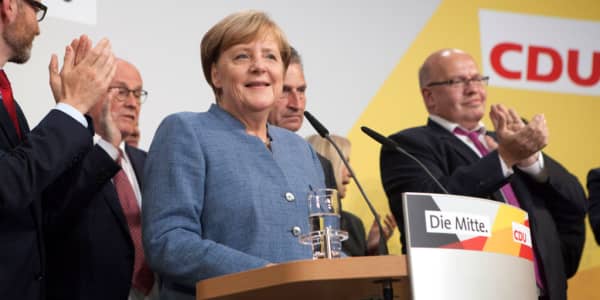Sigmar Gabriel came to talk about social justice, but the crowd in Halle, one of the most economically hard hit towns in eastern Germany, angrily confronted the country's foreign minister about 20 women who had allegedly been raped by immigrants.
Caught off guard, Mr. Gabriel tried valiantly to defend immigrants, saying "in Germany a rapist is brought to justice and if necessary imprisoned, no matter whether he is a foreigner or a German." But the mood of the crowd was angry, despite the country's record low unemployment, just like many voters in France, Britain and the United States.
In a nutshell, the incident illustrated why Germany's Social Democratic party is sinking in the polls five days before federal elections for a new parliament. Once the powerful party of the working class, the center-left SPD finds itself, much like the Democratic party in the United States last year, struggling to find a constituency in the midst of a populist revolt.
Mr. Gabriel, at least, has shown a knack for fighting back. Like America's Democrats, who chose Hillary Clinton as their candidate because they thought she would be more electable than a socialist like Bernie Sanders, many in the SPD now wonder if they made the wrong choice in anointing Martin Schulz as their chancellor candidate over Mr. Gabriel.
More from Handelsblatt Global:
Gaining Strength on Germany's Hard Right
Why the Social Democrats Have a Proud Past and Uncertain Future
The far right and anti-immigrant Alternative for Germany has gained popularity at the SPD's expense and, if current opinon polls are to be believed, is on track to become Germany's third largest party. The fact is, as Josef Joffe, editor of the weekly Die Zeit pointed out, like the rest of Europe, the industrial workers who once formed the base for the SPD are no more than 20 percent of the population. The SPD's current standing in the polls is about the same – 22 percent.
"No socialist party has managed to harness a winning coalition among the new rising classes in the service and knowledge sectors," Mr. Joffe wrote in a recent editorial. "And they have no idea how to deal with the populist revolt."

Mr. Gabriel, who became chairman of the SPD after the party's defeat in the 2009 elections, in January decided against becoming the party's chancellor candidate in this year's vote. Instead he anointed Mr. Schulz, who had been president of the European Parliament but had no government experience in Germany, to take his place running against Chancellor Angela Merkel.
There was a sense the party wanted an outsider, much like Donald Trump in the United States, without any political record. Mr. Schulz's supporters even invited the comparison by pushing the slogan "Make Europe Great Again" on social media. By contrast, Mr. Gabriel agreed to join Ms. Merkel as vice chancellor in a grand coalition following the party's defeat in 2013 and was seen as being part of the establishment. When asked why he stepped aside, Mr. Gabriel commented simply that Mr. Schulz "has a better chance."
In some ways, Mr. Schulz was also seen in the same vein as Bernie Sanders – a fiery populist who could make the case for social justice. But the last nine months of campaigning have shown this assessment to be wrong. Mr. Gabriel has proven more articulate and agile than Mr. Schulz on the campaign trail. He is witty while Mr. Schulz is stolid. Mr. Gabriel attacks his opponents while Mr. Schulz, though known for his fiery personality in the European Parliament, has chosen to debate politely.
Mr. Gabriel says that Germany "must remain a peacemaker" in the world and fight against hunger and poverty. He calls for the doubling of the education budget instead of the defense budget, a reference to the fact that as foreign minister, Mr. Gabriel has crossed swords with the Trump Administration over NATO funding, even when Ms. Merkel has decided to increase defense outlays to the level Washington wants.

He has also led Europe's condemnation of Turkish President Recep Tayyip Erdogan and the crackdown on human rights in the country, warning German businessmen about the dangers of doing business in Turkey, which elicited angry responses from Ankara.
Mr. Gabriel has staked out a fairly accommodative stance toward Russia, arguing that sanctions against Moscow over the annexation of Crimea and fighting in the Ukraine can be loosened without full compliance with the Minsk peace accords. He said the view that the sanctions should only be lifted when there is 100 percent compliance with the Minsk accords is unrealistic.
"Gabriel's absence from the elections is devastating for Germany's relationship with its allies and neighbors, for the foreign policy reputation of the SPD and for his own status as foreign minister," said Constanze Stelzenmuller of the Brookings Institution in Washington. In other words, even Germany's allies may have preferred to see Mr. Gabriel challenge for the chancellorship instead of Mr. Schulz.
Klaus Stratmann and Moritz Koch are political correspondents for Handelsblatt based in Berlin. Charles Wallace is an editor for Handelsblatt Global based in New York.




